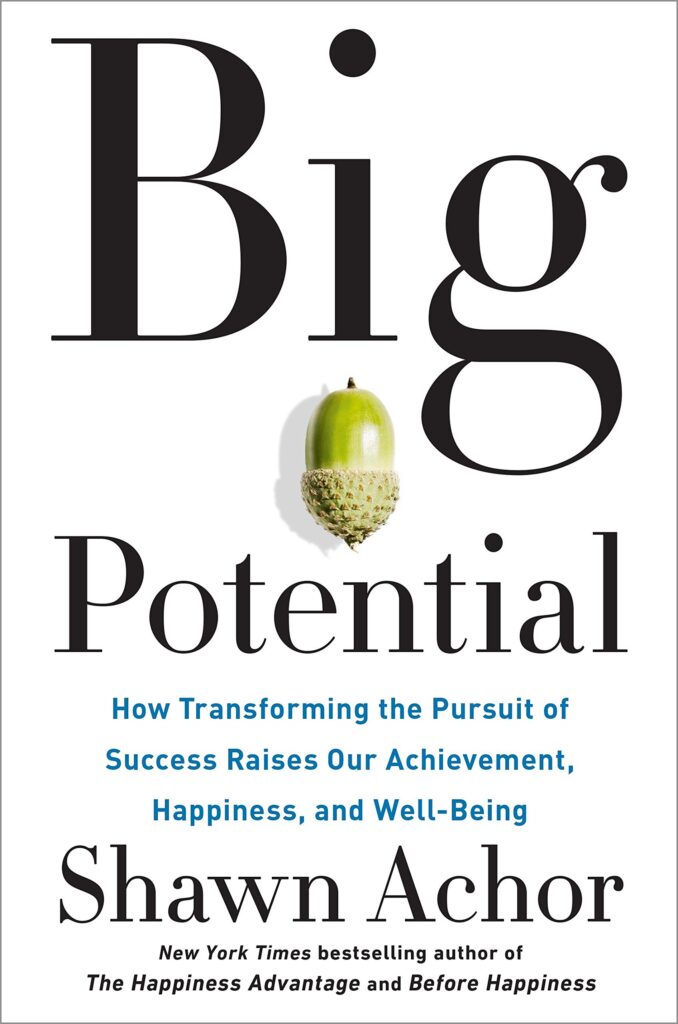Continuing his explorations into what makes us happy and successful that he began in The Happiness Advantage, in Big Potential, Shawn Achor argues that although we learn from a very young age that success is the result of our individual efforts, this is actually only our “small potential.” Real achievement or “big potential”, he argues, is not the result of a star that shines especially brightly, but of star systems, productive communities that influence each other for the better.
In this book, Achor discusses how to foster such communities—both for individuals and for companies. He argues that every person we’ve considered a lone genius was actually surrounded by a community of achievers that fostered them, and he presents compelling evidence that even a team of modest talent can outshine the most brilliant individual contributors—or even a “dream team” of brilliant achievers if they are all at odds and competing with one another rather than working toward a common goal.
The applications of this for game development are clear. I have absolutely been on “dream teams” where a single person working exclusively toward their own achievement killed or almost-killed an entire project single-handedly. Similarly a team of people working at cross-purposes usually produces lackluster creative work that (at best) lacks cohesion. Every large company I’ve worked for has emphasized individual performance for things like pay increases and career advancement, which Achor calls out as exactly the wrong approach to achievement. The times in my life when I’ve produced my best work have always been times when I’ve had strong communities of talented creatives with whom I could bounce ideas. Your potential really is a product of the company you keep.
At just over 200 pages, this book is a pretty breezy read. For the most part, it has a nice synergy with The Happiness Advantage—after all both offer a spirit of giving, growth through human connection, and insights toward positive feedback loops (or “virtuous cycles” as Achor calls them—the opposite of “vicious cycles”). Still, for as impressed as I was with the lack of fluff in The Happiness Advantage, this one felt bloated in places, and there’s some repetition from The Happiness Advantage. Still, the core ideas are interesting, Achor presents them well, and they left me feeling positive and motivated.


